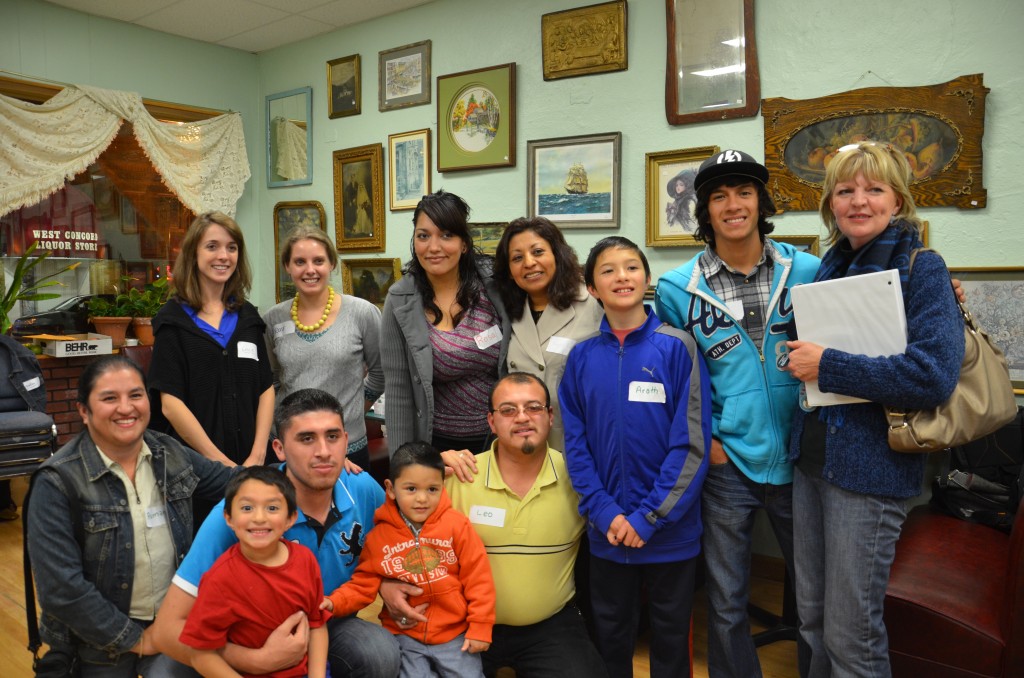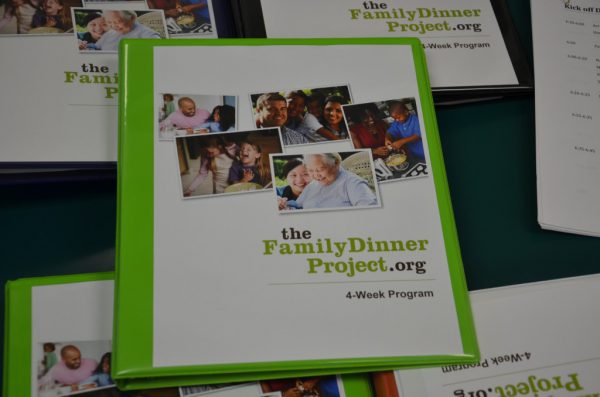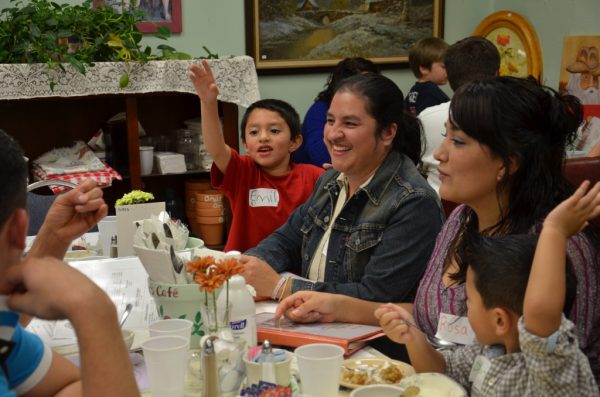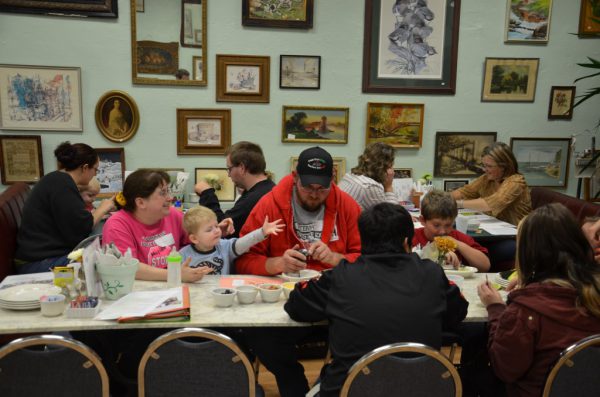
The Family Dinner Project recently hosted a community dinner in Dodge County, MN in partnership with the Mayo Clinic’s Center for Innovation (CFI), a multi-disciplinary team with the goal to transform the experience and delivery of healthcare. CFI’s multi-disciplinary team works to improve three platforms: Practice Redesign, Care At a Distance and Community Health Transformation. CFI’s Community Health Transformation platform is collaborating with The Family Dinner Project, as it aligns with a key component of their triple aim goal – to improve the health of a population.
West Concord, MN is a town that can be a little hard to find. You can’t read the signs, you thought you picked the right exit, but after 15 minutes on a narrow dirt-and-gravel road, with even farmhouses few and far between, you’re starting to think you made a mistake. You pull out your phone and start searching for the blue dot. Was that last strip of gravel really a road?
But you’ll find where you’re going eventually. Tucked away somewhere behind the trees, cows and county road intersections, there are a half dozen restaurant booths full of moms, dads and children waiting to have dinner together.
Families from not only West Concord, but also Kasson, Byron, Pine Island and all over Dodge County, MN gathered at a local mecca, Omar’s Café. They were there for a kick-off dinner for families who signed up to try The Family Dinner Project’s 4-week program in their own homes. It was no coincidence, really, that they were served homemade guacamole, healthy tacos and apple strudel topped with fresh whipped cream. Drooling yet? Good. Nothing’s better at bringing people together than delicious food.

Family dinners bring people together, they inspire family members to talk about who they are and who they want to be. But The Family Dinner Project is not just about bringing people together. As big of an achievement as that is, The Family Dinner Project also strives to showcase the long-term positive effects on the health of families and family members.
Research shows how having regular family dinners can help family members have higher self-esteem, better body image, better grades and better consumption of vital nutrients – things families want to provide and see in each other.
One of The Family Dinner Project’s goals is to unite families around this common wisdom that sharing a fun family meal is good for the spirit, brain and health of all family members. Studies and research have proven it, but more importantly, our everyday experiences have proven it: It is worthwhile to work toward having dinner as a family more often and to capture the full potential of those dinners – in whatever ways your individual family can.

This research intrigued Stephanie Ims-Goin. A born-and-raised southeastern Minnesotan, Triton High School alumna, and now Mayo Clinic Center for Innovation employee, she was delighted to hear what her very own department was doing for families like her own. She jumped at the opportunity to attend the kick-off dinner with her husband and two sons to see what this whole thing was about.
That night they mashed avocados, asked each other questions and took a moment to enjoy the love of their family. With her husband pursuing higher education, Stephanie’s family currently has to balance three different school schedules on top of her work schedule. It’s hard to find the time to make sure their kids are eating healthy good or to ask questions about everyone’s day.
Their hectic schedule mirrors family dinner research, with 69% of Americans reporting that some other activity is competing with the typical family dinner.
In Stephanie’s words, the kick-off dinner was a great chance for them all to get together, unwind and reconnect. The value of the evening was evident as she saw her sons jumping up and down outside with the other kids, shaking tupperware containers full of heavy cream to make dessert for their family.

Stephanie and her husband had a chance to chat with the other families about some common challenges that make getting together for a meal difficult. As a result of her experience with The Family Dinner Project, Stephanie was inspired to create a weekly meal planner for her family. It’s simple and useful, and it was an easy idea to come up with after a little nudge of encouragement.
For Stephanie and her family, it’s all about finding things like this to try. “If we don’t do it perfectly, I’m fine with that,” she said. “It’s the awareness piece” of it, knowing that it’s possible to get something out of family dinners that inspired her to start moving forward in small, imperfect ways.

After all, in the end it’s the small, imperfect steps that count. Because tucked away somewhere in there — past the confusing road signs and all the layers of the daily grind — there’s real conversation, real connection and real health waiting to be uncovered in your own family. And it doesn’t take a smart phone to find it.
